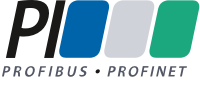ProjectDevon Canada Corporation is known for its Steam Assisted Gravity Drainage (SAGD) well oil sands operations. In 2005, Devon began construction at its Jackfish holdings and started oil production late in 2007. Work on Jackfish 2 began less than one year later. Both operations produce 35,000 barrels of bitumen heavy oil per day, with estimated total recoverable resources of 300 million barrels in the holdings. When planning Jackfish 3 (scheduled to start production in late 2014), they were looking to decrease costs, increase efficiency and simplify process automation in the field.
Solution
Profibus was not part of the innitial Jackfish project. However, when working with an ex-perienced supplier of Profibus technology, Devon identiefied the potential benefits this technology could contribute in the second phase of development. The physical configura-tion and technological situation of Jackfish 2 made Profibus technology a good fit. The well pads are very symmetrical in design, making Profibus easy to engineer and manage. Devon was able to shift a significant amount of work to its fabrication yards. “This is a tremendous advantage,” says Burnett, “as we are able to work more efficiently and take pressure off of our camp facilities. In the field we have been able to add devices much quicker and technicians are able to remotely modify the configuration and troubleshoot problems. This saves time and in our climate, especially in winter, it is a much easier task for our teams”. After completion, Burnett stated “there was a significant savings in the amount of cable required because Profibus provides digital communication, allowing the use of multi-funcional, multiple-branded devices over the same cable network. Jackfish 3 is starting with four seven-well pair pads, with additional pads every one to two years afterwards. “Configuration of new well pads is very quick, as we can communicate with several devices at once and we are able to replicate one well pad from another in minutes” explains Burnett.
Conclusion
Burnett states ”PROFIBUS has proven its value during construction, commissioning and operations. The technicians adapted well and the technology is robust and durable. PI has done a very good job of keeping the protocol consistent and managing changes so we, as end users, can expect consistency in performance and interoperability. And PROFIBUS provides nearly real-time retrieval of diagnostic and statistical data from each device. This will help us be proactive in the way we do maintenance”.
Contributed by Endress+Hauser.
Case Studies
Oil sand wells operations benefit from PROFIBUS (Canada)
PNO,


